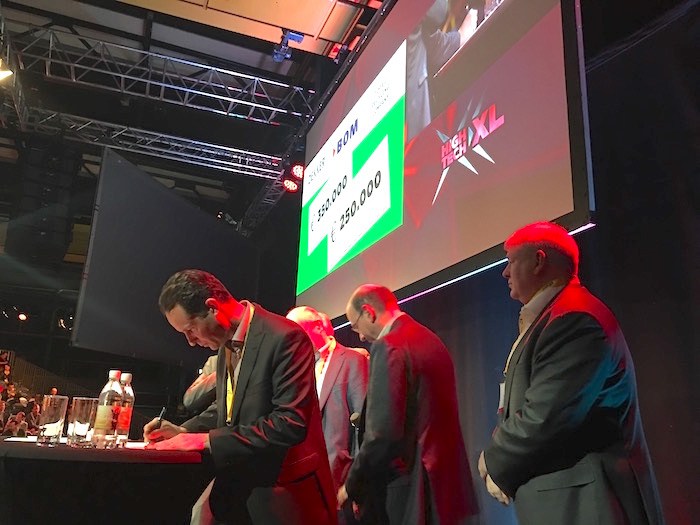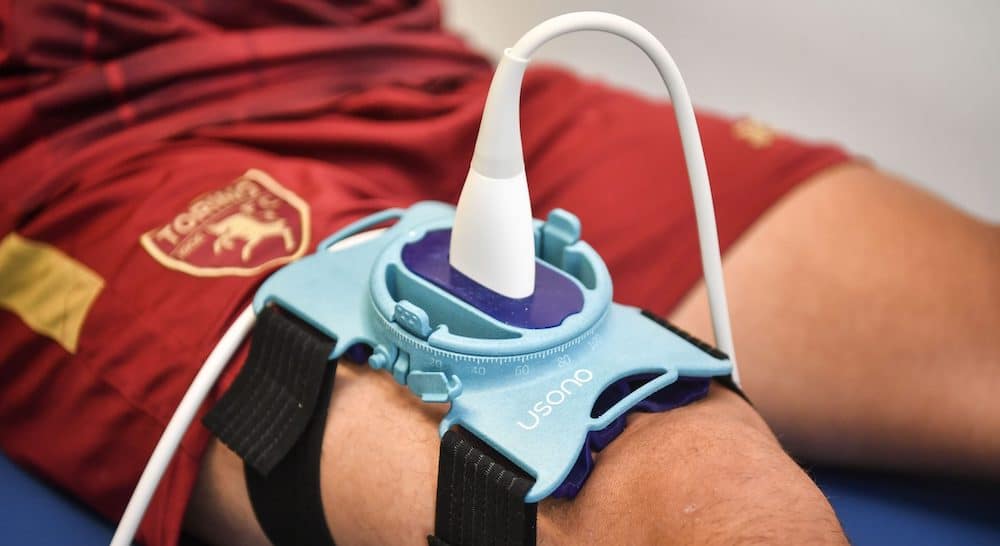Betsy Lindsey on fundraising: from friends & family to venture capital and private equity

No one does anything without money. And nothing beats experience when it comes to raising money for innovative startups.
Our HighTechXL team starts at the beginning, helping startup teams and corporate intrapreneurs understand the whole process of raising capital. Essential to HighTechXL’s success is our ability to draw on decades of experience. All of us have developed tremendously experienced networks, and we can communicate that knowledge.
People will tell you I’m not a typical financial person. I feel like I’m a translator of financial terms because I educate teams in an entertaining way.
I myself have been working with startups since 1999 and even before that, I was working in equity finance transactions for hardware companies.
I worked with medical device technologies at Silicon Valley Bank.
I worked in a group for seven years where all we did was look at medical device and biotech drug development companies to get them the right debt/equity mix.
The entire HighTechXL staff brings unparalleled experience and networks to get new companies set up on a business level.
We’re a business accelerator. We can do the knitting that’s necessary to create a company. Once we get your startup up-to-speed, we can get you connected. We have thousands and thousands of relevant contacts in the United States, in the Netherlands and across Europe.
So, let’s get started!
The essentials of fundraising
We begin at the beginning with the “Friends-and-Family” raise.
Just because startup teams have brilliant engineers and other talent doesn’t mean they have financial expertise. For example, many, many people come to HighTechXL from big corporations with their great ideas and haven’t thought to ask their friends and family for what we call the friends-and-family round.
The reason friends and family are important is because they are your biggest supporters, and they know your passion. They know your character. They know you deliver on what you say you’re going to do because they know your character. So this is usually the fastest stage when it comes to raising money.
From here, the fundraising process gets more demanding. The next level of funding typically is angels or early seed investors. Also, in the Netherlands, subsidies are a great source of startup capital.
But that’s just the beginning. Once a startup starts making progress, there are an increasing number of options.
VCs and PE
Startups with great tech and teams can get financing from venture capital firms and then on to private equity.
Multiple scenarios
Before we can do that, the first conversation we have with teams concerns how much capital they’re going to need. “How much is it going to take to get this to market?” We get to the underlying assumptions about why teams need that much. Test that. Verify that.
THEN we say, “You need 100,000 euros and you don’t have the ability to get traction without building the product further, so subsidies are your answer.”
The other scenario is, “You’ve got your product built and you have a real prototype. You have some letters of intent from investors in your pocket. So angel money might be your next source. Angels want to see some real traction … that real people want to buy your product.” If you have your first revenue, seed and venture capital could be your source.
In a real Series A round, venture capital firms want teams to have 1 million in revenues before they really invest unless it’s a true venture play.
Yes, it’s a complicated process.
What we can do here at HighTechXL is assess where you are, then put you in contact with the best subsidy advisors, relevant angel investors or the right seed and early-stage capital firms.
If you’re new to startup culture, all this might sound like a numbers game. And it is. But developing personal relationships is incredibly important. When I hear about a team that has met with a venture capital firm here in the Netherlands, and they end up doing a deal, it usually comes through a warm lead. There’s never this, “I sent my plan to the website and it made it through.”
Getting to the right people is obviously important. But finding those people comes through understanding investment criteria.
And that’s what we do best at HighTechXL.
Before you come to HighTechXL, here are some points for you and your team to consider:
• It’s important to have someone on the team who can carry the ball in finance. At HighTechXL, we like to see someone on the team ready to be the banker, if you will. That person usually is the one who ends up owning the investment process. That person is the one who can talk about the numbers eloquently and ends up talking with investors.
That person [finance] should also wear a hat as a salesperson because getting investment is a sales process. You’re selling investors on your business.
• Along those same lines, when startups come to an accelerator, they need to know what the inputs are to a financial business model so they know how much they need from investors.
At XL Day in December 2017, we organized a VIP lunch for investors to meet startups from our accelerator program.
If they come to us with a real technology and they understand how much it takes to build that and potentially scale it up, or they have the willpower to go out and find that information, we can work with them.
But many teams come in so inexperienced we can’t help them because they have no idea about the inputs – the assumptions – in a business model because they’ve only made one of these things, ever.
Seasoned entrepreneurs really understand cost structures – the costs of goods – of what they’re making and tend to make really good startups.
Investors need to get to know you. It’s a dating process on the way to marriage. Investors like to know you’re going to honor what you say.
What are really important to investors are your claims in the first meeting. If you say in your initial meeting, “By the end of our first year, we will have done x, y and z.” Then when you follow up with them in one year and tell them you were able to achieve x, y and z, you will have them on board for your next round.
• Financial people like to compare projections versus financials in a process we call “measuring performance to plan.” If you can say unequivocally that you were able to exceed your performance to plan every month over the last year, what an investor would say is, “You weren’t aggressive enough with your projections.”
But what they would also say is, “You understand your business.” It’s very important to earn that trust with investors. They like to watch and gauge your performance and the talks get more serious as time goes by.
I recommend you do your homework on VCs because you need to make sure you’re considering pitching a fund that’s looking for a startup at your stage.
There are plenty of databases – CB Insights for example – that can help you understand the investment criteria of a fund. That way you’ll know if your startup is a match so you’re not wasting your time … or the VC’s time.
Special event
As part of HighTechXL’s ongoing efforts to match startups to investors, we’re having a special event.
On September 21st, join Prins Constantijn, the Ambassador of China and the CEO of Huawei, Europe at the HighTech Connect China event at the High Tech Campus.
This new platform aims to connect Dutch global high tech scale-ups, Chinese and Dutch investors for strategic and financial investor syndication. Registration for invites is closing fast! You can learn more about the event here.
About HighTechXL
HighTechXL is the Netherlands’ premier deep-tech venture builder, solving societal challenges by combining groundbreaking technologies and entrepreneurship. We bring together and activate technology, talent, funding and a strong ecosystem in our unique Venture Building Program.
News

